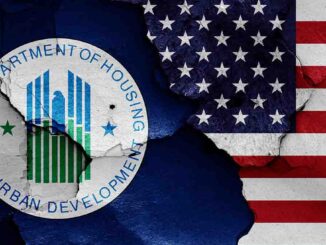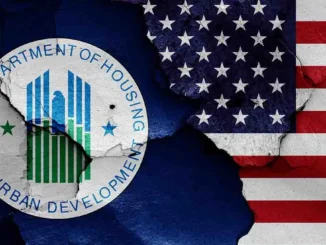
The U.S. Department of Housing and Urban Development (HUD)’s Office of the Inspector General (OIG) published on Thursday two reports broadly alleging that mortgage servicers — and Mr. Cooper in particular — did not meet HUD requirements for providing loss mitigation options to borrowers with delinquent loans insured by the Federal Housing Administration (FHA).
The reports stem from a compliance audit of the loan servicers required by the FHA to provide loss mitigation assistance after borrowers’ COVID-19 forbearance relief periods came to an end. Initial forbearance requests ended on May 31 and no forbearance period is scheduled beyond November 30, according to HUD.
General audit
The HUD OIG initiated the audit since the COVID-era loss mitigation programs “were new and created a risk for both borrowers and the FHA insurance fund when servicers do not properly provide loss mitigation,” the general report said.
The goal was to “determine whether servicers provided borrowers of FHA-insured loans proper loss mitigation assistance after the COVID-19 forbearance ended,” the OIG said.
The audit found that proper loss mitigation options were not provided to borrowers in as many as two-thirds of cases.
“Based on a statistical sample drawn from 231,362 FHA-insured forward loans totaling $41 billion, servicers did not meet HUD requirements for providing loss mitigation assistance to borrowers of 155,297 FHA-insured loans,” the report states. “Nearly half of the borrowers did not receive the correct loss mitigation assistance.”
The correct assistance includes the loss mitigation options that borrowers qualified for; the proper calculation of borrowers’ loss mitigation options; or loss mitigation options that reinstated arrearages to make borrowers current on their payments.
But “these borrowers did not receive the loss mitigation option for which they were eligible, had their loss mitigation option not calculated properly, or received a loss mitigation option that did not reinstate arrearages,” the report states. “Approximately one-quarter of the borrowers received the correct loss mitigation option, but servicers did not follow COVID-19 loss mitigation guidance to help borrowers with payments that were missed during forbearance.”
Mr. Cooper audit
The Mr. Cooper audit was conducted concurrently with the general audit and was designed to “complement that [general] audit by examining how a single provider […] provided loss mitigation for borrowers coming out of COVID-19 forbearance,” the OIG said.
The company was selected due to a 2021 risk assessment that “identified a significant volume of delinquent loans with prior COVID-19 forbearance in its portfolio and based on [HUD OIG’s] awareness of complaints made about Nationstar [doing business as Mr. Cooper] to the Consumer Financial Protection Bureau and the HUD OIG hotline.”
The report states that up to 80% of borrowers with delinquent FHA-insured loans were not provided with proper loss mitigation options by Mr. Cooper after their COVID-19 forbearance periods ended.
“Based on a statistical sample drawn from a universe of 4,288 FHA-insured forward loans totaling $767 million, [Mr. Cooper] did not meet HUD’s requirements for providing assistance to an estimated 3,572,” the HUD OIG said. “Based on our loan sample projection, more than half of the borrowers received incorrect loss mitigation assistance. In these cases, [Mr. Cooper] did not provide the loss mitigation option for which borrowers were eligible, incorrectly calculated loss mitigation options, did not reinstate arrearages, or declined loss mitigation in error.”
While more than one-third of borrowers did receive correct loss mitigation options after their forbearance period, Mr. Cooper “did not correctly follow COVID-19 loss mitigation guidance for these borrowers,” the OIG said.
Mr. Cooper’s response
A spokesperson for Mr. Cooper said that the report did not “accurately reflect our commitment to those customers. We are confident in our track record, and a detailed rebuttal to the report’s findings is included near the end of the report. Most importantly, none of the homes in the sample population were foreclosed upon, and there was no harm to any of the customers.”
Mr. Cooper also lauded the OIG’s work with assembling the report.
“While we were surprised by their decision to singularly focus on Mr. Cooper when our results in assisting customers exiting COVID-19 forbearance outperformed the industry, we appreciate HUD OIG’s important role in auditing FHA program participants and the professionalism of the HUD OIG staff and look forward to ongoing dialog in the spirit of helping as many homeowners as possible,” the company spokesperson told HousingWire.
The company also noted that no loans from the sample have ended in foreclosure, while 90% of customers were offered a solution to bring their loan current. The vast majority of impacted borrowers accepted such options, the company said, and of the remaining 10%, most have paid their loans in full, are in active loss mitigation review, or have had their servicing transferred to another provider.


